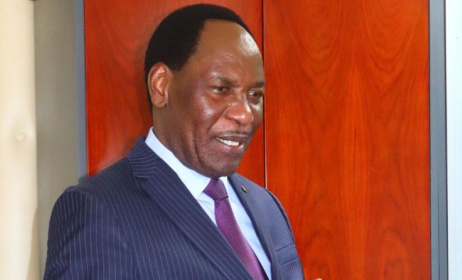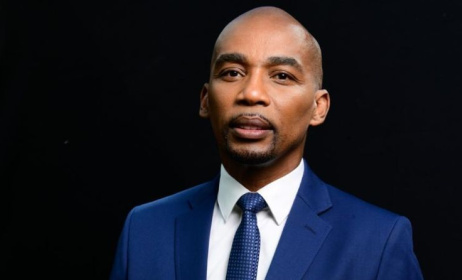SA copyright amendment bill ‘was influenced by big business'
The South African Copyright Alliance has shared with the public a petition to challenge a controversial copyright amendment bill that the alliance says could undermine creators’ copyright if passed into law.
 South African Minister of Trade and Industry Rob Davies.
South African Minister of Trade and Industry Rob Davies.
This after the alliance wrote a letter to the chairperson of parliament’s portfolio committee on trade and industry, Joanmariae Fubbs, voicing its concern that the drafted bill would hamper the efforts of authors of creative works by suggesting that “users” such as broadcasters and digital music services of copyright-protected material should enjoy the same privileges as the creators of that material.
Representatives of the alliance, led by Southern African Music Rights Organisation (SAMRO) CEO Nothando Migogo and Dramatic, Artistic and Literary Rights Organisation (DALRO) managing director Lazarus Serobe, will now head to Parliament in Cape Town to take part in public hearings from 1 to 4 August, after which further changes to the amendment bill may be made before it is passed into law.
The copyright amendment bill was gazetted by the Department of Trade and Industry (DTI), which is led by Minister Rob Davies, on 5 July. Since then, creative industries in South Africa, and particularly musicians, have been up in arms over what seems to be a shift from the basic principles of copyright law.
Of particular concern is an amended clause found throughout the bill which states that “provided that, notwithstanding the transfer of copyright in a literary or musical work by the user, performer, owner, producer or author, the user, performer, owner, producer or author of such work shall have the right to claim an equal portion of the royalty payable for the use of such copyright work”.
What has irked many in the country is the use of “user”, which according to copyright commentators would give third parties the same rights – and by extension a cut of the royalties – as the author. There are also rumours that big multinational businesses such as US video and music streaming websites may have lobbied technocrats in the DTI to amend South Africa’s Copyright Act of 1978 in order to make use of free content from the country. This is according to a source at the South African Copyright Alliance whose name Music In Africa is not at liberty to disclose.
“While we welcome the DTI’s intent to modernise the copyright regime, as the SA Copyright Alliance we are concerned that certain provisions in the bill, if passed into law, disadvantage the very creators the bill aims to protect,” SAMRO CEO Nothando Migogo said.
The South African Copyright Alliance is a collective body that represents such organisations as the Composers, Authors and Publishers Organisation (CAPASSO), the Recording Industry of South Africa (RiSA), the South African Music Performance Rights Association (SAMPRA), the Musicians Association of South Africa (MASA), the Music Publishers’ Association of South Africa (MPASA), SAMRO and DALRO.
Another concern raised by the alliance has to do with the proposed usurpation of copyright when authors are commissioned and funded by the state as well as local and international organisations to create musical or literary works. To this effect, the amendment bill proposes that “copyright … shall be owned by the state or organisation in question”.
“The real impact of the proposed amendments to this section is not that copyright in works funded by the state, international organisations or local organisations shall belong to such parties, but that this copyright exception will now be widened to include the work of composers and authors who earn a living through the royalties earned on musical and literary works commissioned by, amongst others, television broadcasters,” the South African Copyright Alliance’s letter to Fubbs reads.
The organisations under the umbrella of the alliance have also spotted borrowed US legislative jargon used in the amendment bill. Here they argue that the use of “fair use” or “fair dealing” in cases of copyright infringement provides for “flexibility at the expense of certainty”. Commentators elsewhere, including those belonging to the alliance, argue that the US judicial system has the capacity and resources to deal with various copyright cases in that country, whereas South Africa often falls short of effectively presiding over such matters.
There is agreement, however, that the Copyright Act needs to be amended to accommodate technological advancements in the creative and broadcasting industries since its first formulation in 1978.
Below is an attachment of the copyright amendment bill (PDF).



































Comments
Log in or register to post comments